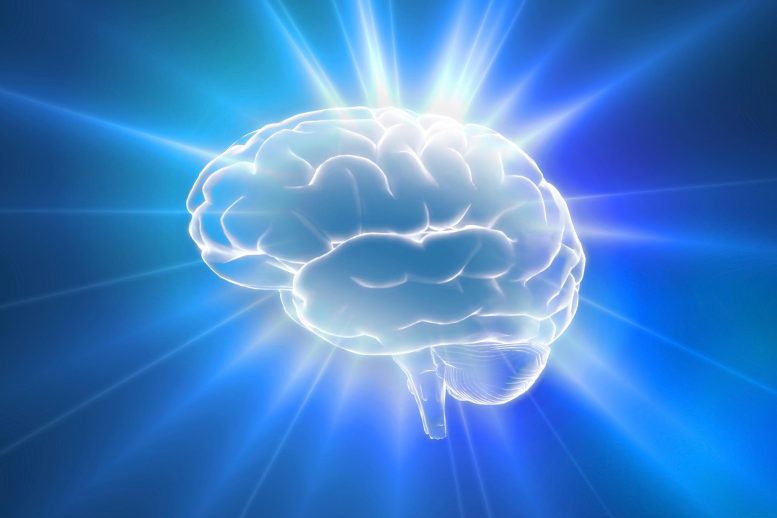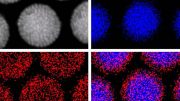
Researchers have discovered a potential stroke recovery therapy that can restore brain function in mice after a stroke. This therapy, involving inhibitors of the metabotropic glutamate receptor mGluR5, has shown to improve sensorimotor functions even when administered days after a stroke. The study suggests that combined with rehabilitation training, this treatment could offer a new approach to stroke recovery. However, further research, including human trials, is necessary.
Researchers have successfully revived brain function in mice affected by stroke through the use of small molecules, which could potentially be developed into a stroke recovery therapy.
“Communication between nerve cells in large parts of the brain changes after a stroke and we show that it can be partially restored with the treatment,” says Tadeusz Wieloch, senior professor of neurobiology at Lund University in Sweden.
“Concomitantly, the rodents regain lost somatosensory functions, something that around 60 percent of all stroke patients experience today. The most remarkable result is that the treatment began several days after a stroke,” Wieloch continues.
Understanding Stroke and Current Treatment Limitations
In an ischemic stroke, lack of blood flow to the brain causes damage, which rapidly leads to nerve cell loss that affects large parts of the vast network of nerve cells in the brain. This may lead to loss of function such as paralysis, sensorimotor impairment, and vision and speech difficulties, but also to pain and depression.
There are currently no approved drugs that improve or restore the functions after a stroke, apart from clot-dissolving treatment in the acute phase (within 4.5 hours of the stroke). Some spontaneous improvements occur, but many stroke patients suffer chronic loss of function. For example, about 60 percent of stroke sufferers, experience lost somatosensory functions such as touch and position sense.
Promising Results from a Recent Study
An international study published recently in the journal Brain and led by a research team from Lund University in collaboration with University of Rome La Sapeinza and Washington University at St. Louis, shows promising results in mice and rats that were treated with a class of substances that inhibit the metabotropic glutamate receptor (mGluR5), a receptor that regulates communication in the brain’s nerve cell network.
“Rodents treated with the GluR5 inhibitor regained their somatosensory functions,” says Tadeusz Wieloch, who led the study published in BRAIN.
Treatment Timing and Effects
Two days after the stroke, i.e. when the damage had developed and function impairment was most prominent, the researchers started treating the rodents that exhibited the greatest impaired function.
“A temporary treatment effect was seen after just 30 minutes, but treatment for several weeks is needed to achieve a permanent recovery effect. Some function improvement was observed even when the treatment started 10 days after a stroke,” says Tadeusz Wieloch.
Importantly, sensorimotor functions improved, even though the extent of the brain damage was not diminished. This, explains Tadeusz Wieloch, is due to the intricate network of nerve cells in the brain, known as the connectome, i.e. how various areas of the brain are connected and communicate with each other to form the basis for various brain functions.
“Impaired function after a stroke is due to cell loss, but also because of reduced activity in large parts of the connectome in the undamaged brain. The receptor mGluR5 is apparently an important factor in the reduced activity in the connectome, which is prevented by the inhibitor which therefore restores the lost brain function,” says Tadeusz Wieloch.
Enhanced Recovery with Combined Approaches
The results also showed that sensorimotor function was further improved if treatment with the mGluR5 inhibitor was combined with somatosensory training by housing several rodents in cages enriched with toys, chains, grids, and plastic tubes.
The researchers hope that in the future their results could lead to a clinical treatment that could be initiated a few days after an ischemic stroke.
“Combined with rehabilitation training, it could eventually be a new promising treatment. However, more studies are needed. The study was conducted on mice and rats, and of course, needs to be repeated in humans. This should be possible since several mGluR5 inhibitors have been studied in humans for the treatment of neurological diseases other than stroke, and shown to be tolerated by humans,” says Tadeusz Wieloch.
Reference: “Inhibiting metabotropic glutamate receptor 5 after stroke restores brain function and connectivity” by Jakob Hakon, Miriana J Quattromani, Carin Sjölund, Daniela Talhada, Byungchan Kim, Slavianka Moyanova, Federica Mastroiacovo, Luisa Di Menna, Roger Olsson, Elisabet Englund, Ferdinando Nicoletti, Karsten Ruscher, Adam Q Bauer and Tadeusz Wieloch, 1 September 2023, Brain.
DOI: 10.1093/brain/awad293
The research is conducted with support from the Swedish Research Council, Alborada Trust, Hans-Gabriel and Alice Wachtmeister Foundation, and Multipark Strategic Research Area.









Be the first to comment on "Promising Findings – Scientists Successfully Revive Lost Brain Function Following Stroke"